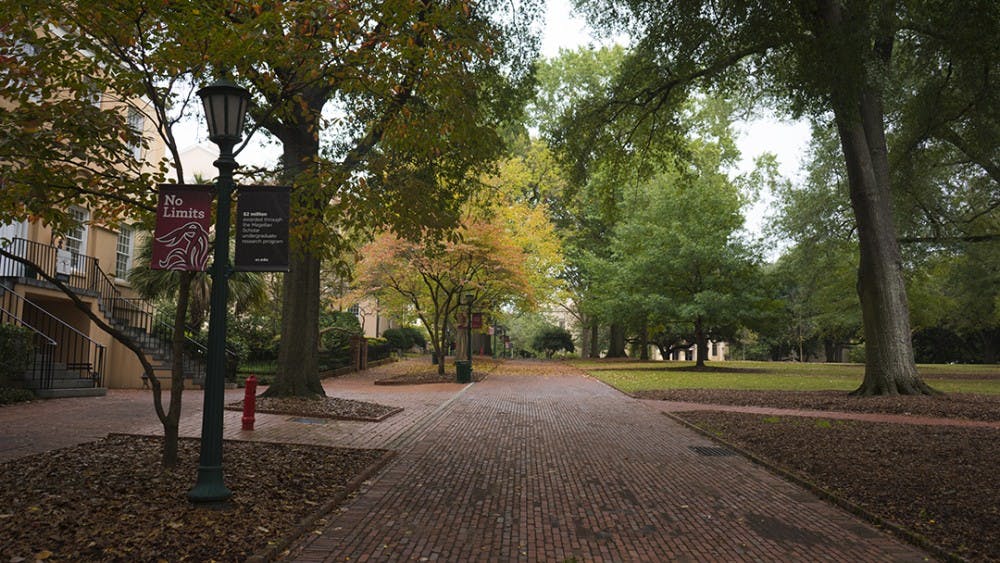There are possible coronavirus clusters in two residence halls and quarantine housing capacity is now at 72%, President Bob Caslen said at a town hall on Wednesday.
Two residence halls were saliva tested today after the coronavirus was detected in the buildings’ wastewater, Caslen said. The university is still awaiting the test results.
Caslen said if the tests confirm positive cases within the dorms, they might be quarantined. The university is not allowed to disclose which dorms because of the Family Educational Rights and Privacy Act, according to university spokesman Jeff Stensland in a text interview.
Over the weekend, four COVID-19 positive students were taken to the emergency room after their parents requested they be seen, Stensland said. According to Student Health Services Director Deborah Beck, the students were evaluated and released within a few hours. None required hospitalization.
The National Advocacy Center and Bates West, the quarantine and isolation buildings, now have 72% of their capacity in use, or 308 spaces. This is an increase from the previously reported capacity of 60% on Monday.
No other COVID-19 numbers were updated at the town hall.
Caslen said he has asked Provost William Tate to develop contingency plans for switching instruction online, but at this time, Caslen is not considering shutting down.
“The last thing I want to do is, is to take this problem, and close the university down, and then dump the problem onto the city of Columbia and the state of South Carolina,” Caslen said. “That, in my opinion, would be totally irresponsible.”
Anna Edwards, the associate vice president for Student Life, said two new food trucks will be added to campus next week to reduce crowding at Russell House and other dining locations.
The university has hired new nurses to help reach out to quarantining and isolating students, both on and off campus, Beck said.
“In fact, they start this week, to, kind of, expand our ability to touch all students, whether they are on campus or off campus,” Beck said.
Caslen addressed the increase in coronavirus case numbers and the media attention the university has received as a result.
“I can live with the high numbers and the media attention, that's fine. Because what's more important to me ... is to find our positives, and take care of them; put them back into class.”

